Discrimination Highlight

Has religion ever been used to justify discrimination in sports ?
Religion has been used to justify discrimination in sports, including apartheid in South Africa, Islamic veiling and swimming, and caste-based discrimination in India. Contemporary issues include Sikh turbans and safety regulations, and Jewish holidays and scheduling conflicts. Addressing these issues requires a balance between respect for religious freedom and principles of equality and fairness in sports.

How can multicultural education help reduce racial and ethnic discrimination ?
Multicultural education is crucial in combating racial and ethnic discrimination. It fosters cultural awareness, intercultural competence, challenges biases, promotes social justice, builds inclusive communities, and prepares global citizens. By doing so, it helps reduce discrimination and creates a more equitable and harmonious society.

How can women protect themselves from gender-based discrimination and harassment ?
Gender-based discrimination and harassment are pervasive issues that women face in various settings, including the workplace, education, and public spaces. To protect themselves, women can take several proactive steps to ensure their safety and well-being, including educating themselves about their rights and forms of harassment, creating a supportive network, taking preventive measures, reporting incidents promptly, seeking legal advice and counseling services when needed, and advocating for change by raising awareness and participating in policy making. By employing these strategies, women can better protect themselves from gender-based discrimination and harassment while also contributing to a broader cultural shift towards equality and respect.

What legal resources are available for women who face discrimination or abuse ?
This text provides a summary of legal resources available to women who are facing discrimination or abuse. It outlines various government agencies that enforce laws related to gender-based discrimination and violence, non-governmental organizations that offer support and information, legal aid organizations that provide free or low-cost legal services, and online resources that offer legal information and self-help guides. The text emphasizes the importance of seeking help from these sources if one is experiencing any form of mistreatment or inequality based on their gender.
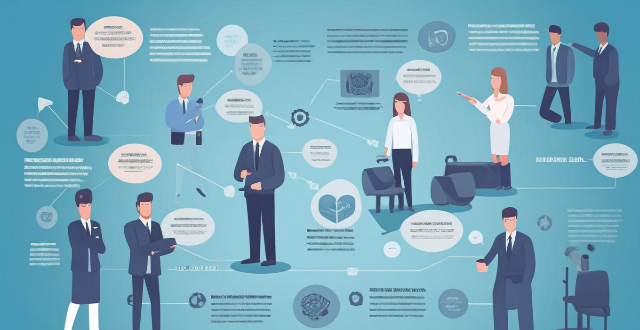
How can sports organizations work to address issues of discrimination and exclusion within their own communities ?
Strategies for sports organizations to address discrimination and exclusion include creating diverse leadership teams, implementing anti-discrimination policies, promoting inclusive language and culture, fostering open communication, educating members about inclusivity, and collaborating with other organizations.

Can you explain the concept of intersectionality as it relates to women's rights ?
Intersectionality is a term used to describe the interconnectedness of various forms of oppression and discrimination, including race, gender, sexuality, class, ability, and other factors. It recognizes that individuals can experience multiple forms of discrimination simultaneously, and acknowledges that not all women have the same experiences or face the same challenges. Intersectionality advocates for an approach that takes into account all aspects of a person's identity and experiences, recognizing and addressing the ways in which different forms of discrimination overlap and intersect. This concept is important for understanding and addressing women's rights because it recognizes the diversity of women's experiences and the need for a nuanced approach to advocacy and policy-making.

What kind of contouring and highlighting techniques do stars use ?
Contouring and highlighting techniques used by stars include using bronzer for depth, highlighter for glow, concealer for shaping, powder for setting, and brushes for application. These techniques help sculpt and define facial features, creating a more chiseled and polished look.

How do inclusive policies benefit society as a whole ?
Inclusive policies are designed to promote equality, fairness, and social cohesion by eliminating barriers and discrimination. These policies benefit society as a whole by ensuring equal access to resources, services, and opportunities for all individuals regardless of their background, abilities, or circumstances. In addition to promoting equality and fairness, inclusive policies also enhance social cohesion by fostering a sense of belonging and mutual respect among different groups within society. This leads to reduced discrimination, increased tolerance, and strengthened community bonds. Inclusive policies also have positive economic outcomes by expanding the talent pool, reducing poverty, and stimulating consumer spending. Furthermore, these policies foster innovation and creativity by providing diverse perspectives, encouraging risk-taking, and promoting collaboration. Finally, inclusive policies can enhance a country's global competitiveness by attracting talent, improving international relations, and driving economic growth.

How do I write a successful scholarship application letter ?
This guide provides tips on how to write a successful scholarship application letter, including an introduction that grabs the reader's attention and highlights academic achievements, extracurricular activities, and community involvement. The body of the letter should focus on these areas, highlighting strengths and accomplishments, while the conclusion summarizes main points and reiterates why the candidate is a strong choice for the scholarship. The closing should be polite and include contact information.

How can we encourage more women to pursue leadership roles ?
Encouraging Women to Pursue Leadership Roles - **Education and Awareness**: Promote STEM education, highlight role models, address gender stereotypes. - **Workplace Policies and Practices**: Establish flexible work arrangements, provide mentorship programs, enforce anti-discrimination laws. - **Networking and Professional Development**: Sponsor women's networking events, offer leadership training programs, create women-specific scholarships. - **Cultural Change and Empowerment**: Promote a culture of inclusivity, address the confidence gap, celebrate women's achievements.

What are the best practices to recreate a celebrity's red carpet makeup look ?
Recreating a celebrity's red carpet makeup look requires careful research, analysis, and the right tools. Start by finding high-quality images and tutorials, then analyze key features like eyeshadow style and lip color, considering your face shape and skin tone. Prepare your toolkit with high-quality brushes, primer, foundation, contour and highlighter, eye products, blush, bronzer and highlighter, and lip products. Begin with a clean slate by cleansing and moisturizing your face, then apply foundation, contour, blush, and highlighter. For the eyes, follow the celebrity's style with eyeshadow, eyeliner, mascara, and false lashes if needed. Finally, outline your lips with a lip liner, add lipstick, and top it off with a gloss. Don't forget to use a setting spray to lock in your look and review your work in natural light. Remember, practice makes perfect!

How can employers support the integration of immigrant workers ?
Employers can support the integration of immigrant workers by implementing cultural sensitivity training, providing language support, ensuring clear communication, establishing mentorship programs, promoting inclusion in decision-making, and fostering workplace inclusivity. These efforts not only create a more welcoming environment but also enhance productivity by valuing diversity and the unique perspectives of all employees.

How can we encourage more girls to pursue careers in science and technology ?
To encourage more girls to pursue careers in science and technology, several strategies can be employed, including introducing female role models in STEM fields, offering targeted scholarships, creating supportive learning environments, fostering industry collaboration, promoting diverse perspectives, building confidence, improving media representation, advocating for policy changes, and engaging communities. Implementing these measures can help create an environment where girls feel empowered to explore and excel in science and technology.
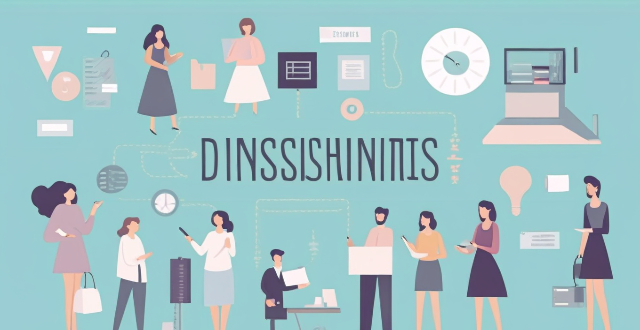
What measures have been taken to ensure equal pay for women in different industries ?
The text discusses the various measures taken to ensure equal pay for women in different industries. These include legislation, transparency and reporting, collective bargaining, education and awareness campaigns, gender bias training, promotion of women into higher-paying roles, performance evaluation reforms, and addressing occupational segregation. The conclusion states that achieving equal pay requires a multifaceted approach involving all these measures, and there is still much work to be done to ensure true gender equality in the workplace.

What are some unique street food dishes from around the world ?
This article provides an overview of various unique street food dishes from different parts of the world. It highlights dishes such as Poutine from Canada, Ceviche from Peru, Satay from Indonesia, Falafel from the Middle East, and Jalebi from India. The article describes each dish's key ingredients and characteristics, highlighting their cultural significance and culinary traditions.

What are some successful examples of legislation that have improved women's rights ?
The text discusses various successful legislations that have improved women's rights over the years. These include granting women the right to vote, prohibiting gender-based wage discrimination, protecting pregnant women in the workplace, providing funding for services for victims of domestic violence, improving women's health care access and coverage, protecting pregnant workers from dismissal or reduced pay during their pregnancy and after childbirth, and eliminating discrimination against women in all areas of life.

What are the ethical implications of climate refugees and displacement ?
Climate change has led to the displacement of people, creating a new category of refugees known as "climate refugees." The ethical implications of this issue involve the right to life and security, respect for human dignity, responsibility and accountability, international cooperation, and sustainable development. It is essential to ensure that climate refugees have access to basic necessities like food, water, shelter, and healthcare, and treat them with compassion and empathy. Governments, corporations, and individuals must take responsibility for their actions and work towards mitigating the effects of climate change. International cooperation is necessary to develop policies and strategies that protect the rights of climate refugees and prevent further displacement. Sustainable development is also crucial in minimizing the impact of climate change on future generations and avoiding further displacement. Addressing these challenges requires collective action from all sectors of society.
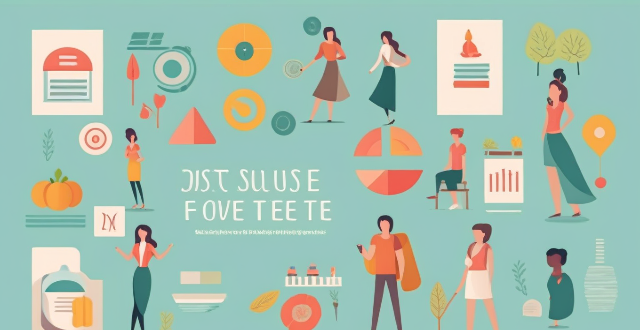
What are the legal rights of women in the workplace ?
This text discusses the legal rights of women in the workplace. It outlines five key areas: equal pay, anti-discrimination, pregnancy leave, harassment and bullying, and parental leave. The text explains that women have the right to receive equal pay for equal work, be protected from discrimination in hiring, promotion, and termination, take pregnancy and parental leave without losing their job or facing negative consequences, and work in an environment free from sexual harassment, bullying, and other forms of gender-based misconduct. The text concludes by emphasizing the importance of these rights in ensuring that women can work in a safe and supportive environment where they are treated fairly and with respect.
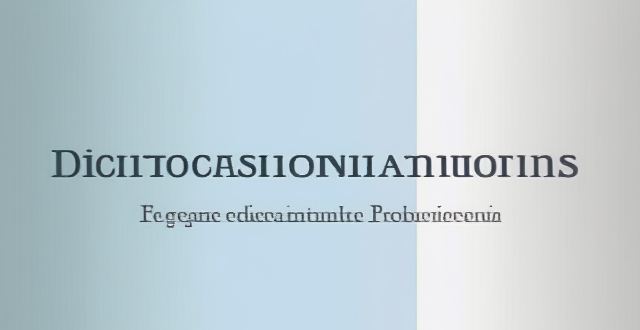
Are there any international laws that protect the rights of women ?
The text discusses international laws and conventions established to protect and promote women's rights, including the Convention on the Elimination of All Forms of Discrimination Against Women (CEDAW), the Inter-American Convention on the Prevention, Punishment and Eradication of Violence Against Women, the Maputo Plan of Action, the European Convention on Human Rights (ECHR), and the Beijing Declaration and Platform for Action. These legal frameworks aim to address issues such as discrimination, violence, gender equality, health care, education, and economic resources. The effectiveness of these laws often depends on national governments' commitment to implementing and enforcing them.

How can writers use sports as a metaphor for larger societal issues ?
The text provides a guide on how writers can use sports as a metaphor to explore larger societal issues. The playing field in sports is likened to a microcosm of society, where fairness, equality, and justice are examined. Teamwork and collaboration in sports are used to discuss cooperation, diversity, and inclusion in society. The competitive nature of sports serves as a metaphor for the drive for success, ambition, perseverance, and the cost of success. Rules and ethics in sports are compared to societal laws and ethical standards, discussing corruption, cheating, and the importance of maintaining integrity. Finally, overcoming adversity in sports is used as a platform for stories of hope and resilience in the face of societal challenges.
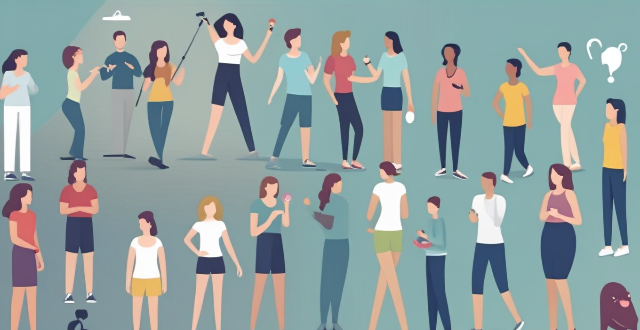
How do gender biases affect coaching and leadership positions within sports teams and organizations ?
Gender biases in sports coaching and leadership positions manifest as discrimination against women, stereotyping of female coaches, and limited opportunities for women. These issues can be addressed by implementing diversity policies, providing mentorship programs, encouraging cultural change, and promoting transparency and accountability within sports organizations.
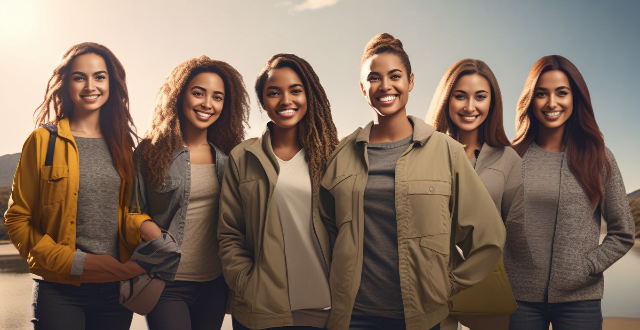
What are some common challenges faced by women in the workplace, and how can they be addressed ?
The article discusses common challenges faced by women in the workplace, including gender bias, work-life balance issues, harassment and discrimination, and lack of mentorship and networking opportunities. Solutions to these challenges are also provided, such as addressing gender bias through pay equity analyses and blind hiring processes, promoting work-life balance with flexible work arrangements and parental leave policies, creating a safe and respectful workplace through clear policies and training on harassment prevention, and providing mentorship and networking opportunities through mentorship programs and leadership development programs. The article concludes that addressing these challenges requires a concerted effort from both individuals and organizations to create a more equitable and supportive environment for women in the workforce.

What are the challenges to achieving educational equity ?
Educational equity is a critical issue in modern society, but achieving this goal is not without its challenges. Some of the major obstacles that hinder the progress towards educational equity include limited resources, socioeconomic disparities, systemic racism and discrimination, and lack of parental involvement. It is essential for policymakers, educators, and communities to work together to develop strategies that promote equal access to quality education for all students.

What are some examples of successful initiatives that use sports to promote social inclusion ?
This text discusses successful initiatives that use sports to promote social inclusion. It highlights five examples of such initiatives: Street Football World, Homeless World Cup, Wheelchair Basketball Initiatives, Sporting Equals, and Gender Equality in Sports Programs. These initiatives aim to unite people through football, inspire homeless people, promote disability inclusion, challenge discrimination in British Asian communities, and encourage women's participation in various sports, respectively. The activities include global tournaments for marginalized communities, international tournaments for homeless teams, local wheelchair basketball leagues, community cricket events, and women's sports leagues. The impact of these initiatives is significant, with increased public awareness about homelessness, personal transformation stories of participants, improved physical fitness and self-esteem among disabled individuals, reduced instances of racism and discrimination in sport, and higher visibility and recognition of women in sports.

What impact do inclusive policies have on minority groups and marginalized communities ?
Inclusive policies have a significant impact on minority groups and marginalized communities, promoting equality, diversity, and fairness in society. These policies improve access to education and employment opportunities, increase representation in government and decision-making processes, reduce discrimination and harassment, and improve health outcomes for these communities. Overall, inclusive policies help ensure that all individuals have equal opportunities to participate in all aspects of life.

What is the relationship between immigration policies and human rights issues ?
Immigration policies significantly impact human rights issues by determining who is allowed to enter a country and under what conditions. Key areas of concern include protection of refugees and asylum seekers, family reunification, labor rights, and non-discrimination. Policies should ensure the safety and well-being of refugees, facilitate family reunions without undue delay, protect migrant workers from exploitation, and promote equality in access to education, healthcare, and social services. Countries must uphold these principles to ensure fair and just treatment for all individuals, regardless of their immigration status.

What are the common challenges faced by women in the workplace ?
The article discusses common challenges faced by women in the workplace, including gender bias and stereotyping, work-life balance issues, harassment and discrimination. It suggests strategies for overcoming these challenges, such as advocating for equal opportunities and fair treatment, building a support network, and seeking legal recourse when appropriate.

How do immigration policies affect the labor force participation of immigrants ?
Immigration policies significantly impact the labor force participation of immigrants by determining their legal status, access to services, family reunification, economic opportunities, and protection from discrimination. Policies that provide work permits, authorization to work, language training, education and training programs, healthcare, social safety nets, family support, childcare options, business opportunities, self-employment regulations, equal employment opportunities, and protection from exploitation can all contribute to successful integration of immigrants into the workforce. This benefits both the immigrants and the host country's economic growth and development.

What are the potential consequences of unequal vaccine distribution ?
The text discusses the potential consequences of unequal vaccine distribution, which include continued transmission and mutations of the virus, prolonged pandemic, economic disparities, educational setbacks, strain on healthcare systems, social inequality, global travel restrictions, political tensions, increased antimicrobial resistance, and mental health impact. These consequences highlight the importance of equitable vaccine distribution to effectively and efficiently end the COVID-19 pandemic.

What are the most popular food festivals around the world ?
The text provides a summary of eight popular food festivals around the world, each with its unique highlight, duration, and events. The festivals include Oktoberfest in Munich, Germany; Salon del Gusto in Turin, Italy; La Tomatina in Buñol, Spain; Puck Fair in Killorglin, Ireland; Matsuri Festival in Japan; Festa do Senhor Bom Jesus dos Navegantes in Brazil; Diwali Mela in India; and Harbin Ice & Snow Festival in China. Each festival showcases different aspects of food culture, from beer and German cuisine to fine food and drink, tomato fights, street entertainment, cultural performances, seafood feasts, sweets and snacks, and ice sculptures.